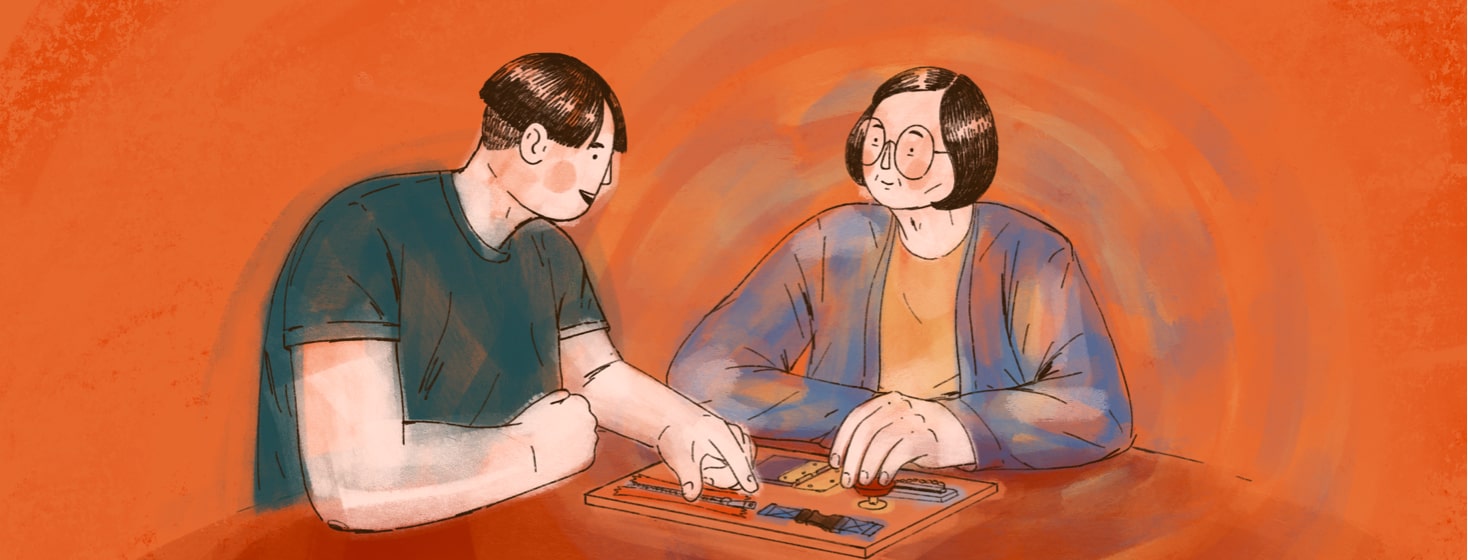Occupational Therapy and Its Role in Alzheimer's Care
Alzheimer's disease is described as a "type of dementia that affects memory, thinking, and behavior. Symptoms eventually grow severe enough to interfere with daily tasks."1
I have seen the tremendous losses that are experienced by individuals battling Alzheimer's and the losses their families also experience. This experience has been over a 17-year career in occupational therapy and personally as a caregiver for both my parents.
Occupational therapy and Alzheimer's
Occupational therapists treat from a model of holism. An idea that considers all aspects of a person, including the individual's mind (psychological impact), brain (cognition), body, environment, and the specific roles each person carries out daily. Occupational therapists interact and educate the patient, caregiver, and family members in strategies at the various stages of Alzheimer's disease.
An occupational therapist's goal is to provide each individual and their family with the support necessary through education, environment, and safety modifications, to live their best life. As an individual progresses through the stages of Alzheimer's disease it is of utmost importance to maintain dignity, no matter what a person's level of functioning is.
Alzheimer’s impact on daily life
Alzheimer's disease causes irreversible damage to the person's brain. Eventually causing complete and total disruption of the person's activities of daily living (ADLs) and instrumental activities of daily living (IADLs).2
ADLs
It becomes increasingly more difficult for the person to bathe, dress, and feed themselves. Their functional mobility, or ability to physically and safely navigate their environment in their daily lives, is deeply impacted.
IADLs
The disease process interferes with a person's ability to perform activities, such as driving, shopping, cooking, cleaning, managing finances, all of which are IADLs.
Cognitive and communication difficulties
These difficulties appear and range with each person, and depending on the disease stage. Some of the difficulties can range from difficulty finding words when speaking, mild to severe memory deficits, disorientation to person, place, or time, hallucinations, and even delusions.2
How occupational therapy can help with Alzheimer's
Below are some useful ways an occupational therapist can help aid and assist with managing Alzheimer's.2
- Improve or maintain function - OTs will analyze the person's ability to perform their everyday activities (ADLs and IADLs). They will offer suggestions and strategies. These suggestions and strategies are dependent on if the person is in early-onset, mid-stage, or end-stage of Alzheimer's.
- Home evaluation - Occupational therapist, with a referral from a physician, come into the individual's home and perform a home safety evaluation.
- Tips and suggestions to help prevent wandering of your loved ones
- Functional and personalized home exercise programs to maintain strength, endurance, and range of motion.
- Help problem-solve through behaviors that may be present. Focusing on what the triggers are and how to prevent and incorporate meaningful activities back into the person's life.
- Family and caregiver education. OT can provide insights into the disease process, tips on improving or maintaining function and emotional connection. As well as, resources available to loved ones and caretakers for support.
Safety and fall prevention.
From first-hand experience, caregiver burnout is real. OT can benefit the family/caregiver just as much as the individual battling Alzheimer's.
Occupational therapy medical coverage
OT services are covered by most insurances and Medicare. Again, medical coverage of these services will depend on everyone’s individual health plan and circumstance. If you feel like OT services could be of benefit. Please speak to your doctor, or your loved one's physician today, for referral to occupational therapy services.
Tell us about your experience with OT services and Alzheimer's in the comments below, or share your story with the community.

Join the conversation